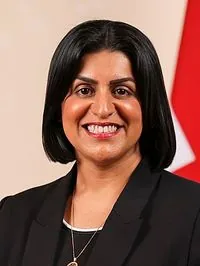Jenrick: ECHR Misuse Protects Criminals, UK Should Leave
Former immigration minister Robert Jenrick criticizes ECHR for protecting criminals, calls for UK withdrawal. He argues the convention has been twisted from its original noble purpose, hindering deportations.

Robert Jenrick, former immigration minister, has strongly criticized the European Convention on Human Rights (ECHR), claiming it has been distorted to protect criminals. Speaking at a Conservative Party conference rally, Jenrick argued that the ECHR's original noble purpose has been corrupted.
The ECHR, established in 1953, was initially championed by Winston Churchill and other European leaders in the aftermath of World War II. It aimed to protect fundamental human rights across Europe. However, Jenrick contends that since the 1970s, the convention has been "twisted and bent out of all shape" by activist judges, charities, and NGOs.
Jenrick cited a case involving a Ugandan national who committed murder in London but avoided deportation due to mental health concerns. He argued that such decisions, based on ECHR interpretations, compromise public safety.

"That is absurd, but is also shameful. I am not prepared to put our citizens at risk any longer."
The former minister emphasized that the ECHR has become an obstacle to deporting terrorists, dangerous criminals, and illegal migrants. He warned that failure to address this issue could have severe consequences for the Conservative Party and the country.
Jenrick proposed a clean break from the ECHR, dismissing other options such as reform or derogation as ineffective or impossible. He argued that leaving the ECHR is crucial for the party's future and for addressing other pressing national issues.
It's worth noting that the ECHR has played a significant role in shaping human rights law across Europe since its inception. All 46 member states of the Council of Europe are party to the Convention, which covers fundamental rights such as life, liberty, and fair trial. The UK incorporated the ECHR into domestic law through the Human Rights Act 1998.
While the ECHR has been instrumental in many landmark human rights cases, it has also faced criticism for allegedly interfering with national sovereignty. The ongoing debate reflects the complex balance between protecting individual rights and maintaining national security and immigration control.
As the discussion continues, it remains to be seen how the UK will navigate its relationship with the ECHR and address the concerns raised by politicians like Robert Jenrick.


































